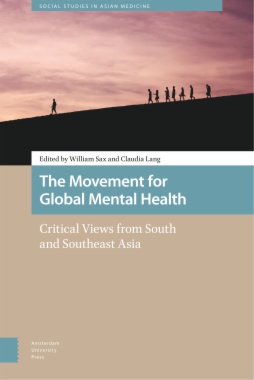In The Movement for Global Mental Health: Critical Views from South and Southeast Asia, prominent anthropologists, public health physicians, and psychiatrists respond sympathetically but critically to the Movement for Global Mental Health (MGMH). They question some of its fundamental assumptions: the idea that "mental disorders" can clearly be identified; that they are primarily of biological origin; that the world is currently facing an "epidemic" of them; that the most appropriate treatments for them normally involve psycho-pharmaceutical drugs; and that local or indigenous therapies are of little interest or importance for treating them. The contributors argue that, on the contrary, defining "mental disorders" is difficult and culturally variable; that social and biographical factors are often important causes of them; that the "epidemic" of mental disorders may be an effect of new ways of measuring them; and that the countries of South and Southeast Asia have abundant, though non-psychiatric, resources for dealing with them. In short, they advocate a thoroughgoing mental health pluralism.
- Cover
- Table of Contents
- 1. Global Mental Health
- Views from South Asia and Beyond
- William S. Sax and Claudia Lang
- Critical Histories
- 2. Mental Ills for All
- Genealogies of the Movement for Global Mental Health
- 3. Schizoid Balinese?
- Anthropology’s Double Bind: Radical Alterity and Its Consequences for Schizophrenia
- 4. Misdiagnosis
- Global Mental Health, Social Determinants of Health and Beyond
- Anindya Das and Mohan Rao
- The Limits of Global Mental Health
- 5. Jinns and the Proletarian Mumin Subject
- Exploring the Limits of Global Mental Health in Bangladesh
- 6. Psychedelic Therapy
- Diplomatic Re-compositions of Life/Non-life, the Living and the Dead
- Alternatives
- 7. The House of Love and the Mental Hospital
- Zones of Care and Recovery in South India
- 8. Ayurvedic Psychiatry and the Moral Physiology of Depression in Kerala
- 9. Global Mental Therapy
- Afterwords
- 10. Global Mental Health
- 11. “Treatment” and Why We Need Alternatives
- An Autoethnographic Reflection on Psychiatric Incarceration in India
- Index

